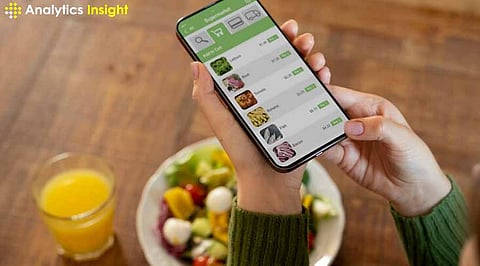

Over 75% of consumers now rely on mobile apps to manage their health and wellness. This marks a significant shift towards tech-enabled nutrition and dieting. At the forefront of these trends are AI-powered nutrition apps. These apps harness the power of artificial intelligence to provide users with personalized nutrition plans, real-time meal tracking, and expert recommendations. As the demand for health-oriented applications continues to grow, these innovative tools are bridging the gap between technology and wellness. They are empowering individuals to take control of their health like never before.
The use of AI technology has dramatically improved the operation of nutrition apps. Because these programs consider user dietary preferences, health goals, and allergies, the recommendations are very personalized. It has been estimated that 60% of consumers currently use some form of digital health solution, in large part due to nutrition and fitness tracking.
MyFitnessPal is a globally known application for nutrition tracking. This app employs AI to regulate the consumption of calories and analyze the nutritional value. It has a vast base of food products, and people can use the barcode scanner to enter the meals. MyFitnessPal's recommendations, based on personal data and daily summaries, are especially appreciated by more than 140 million monthly users.
YAZIO is another unique app that uses AI to design special meal plans for customers. This nutrition tracking app is about weight; it provides prescriptions for losing, gaining, or maintaining weight. The management of fasting plans and recipes incorporated by YAZIO complies with other current wellness trends. Furthermore, Statista shows that 43% of health-conscious individuals globally consider applications that support fasting, to which YAZIO belongs.
Incorporating nourishment with life transformation, Lifesum helps users by utilizing Artificial Intelligence. In addition to the meal tracking feature, it comes with hydration reminders, exercise methods, and healthy recipes. Such moderation is a selling point for Lifesum's target audience, the young, mobile generation interested in overall well-being management.
True to its name, Eat This Much takes the guesswork out of meal planning. AI algorithms suggest meals based on user preferences, available ingredients, and budget constraints. This unique approach is gaining traction as 70% of users prefer AI health apps offering automated suggestions.
Foodvisor's image recognition technology sets it apart. Simply snapping a photo of a meal allows users to receive an instant breakdown of calories and nutrients. Its intuitive AI capabilities make it an attractive option for users who prioritize convenience alongside health tracking.
The adoption of AI in health apps is expected to grow further, with a projected market value of $72.2 billion by 2030. These tools save time and empower users to make informed decisions about their diets and overall health.
Whether tracking meals, automating personalized diet plans, or providing insightful analytics, AI-powered nutrition apps are reshaping how individuals manage their well-being. With continued innovation, these apps promise a healthier and more sustainable lifestyle.
